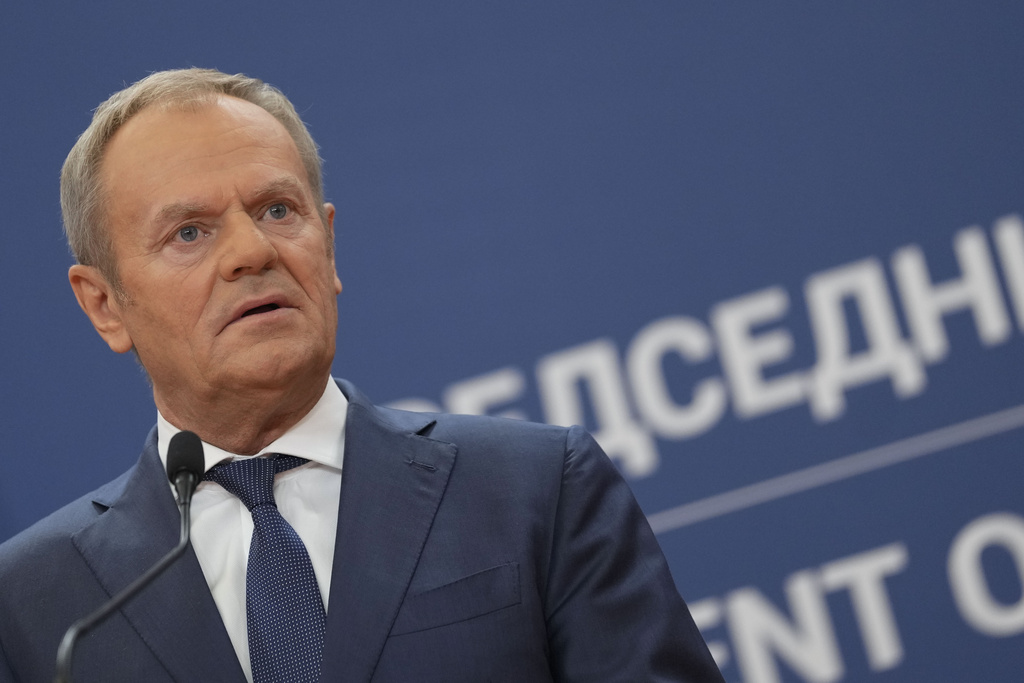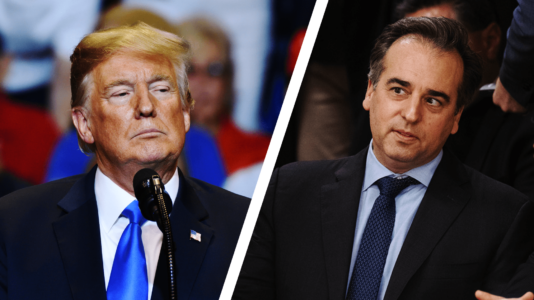In the wake of Donald Trump’s recent victory in the U.S. presidential election, Poland’s ruling coalition, led by Prime Minister Donald Tusk, is grappling with the potential fallout from strained relations.
Trump’s campaign team reportedly received a dossier of the negative remarks made about him by Polish liberals, complicating the path toward future cooperation between the two countries.
According to Dominik Tarczyński, an MEP from Poland’s conservative Law and Justice (PiS) party, the newly elected U.S. president has been made aware of critical statements by various Polish leaders, including Tusk and the wife of Foreign Minister Radosław Sikorski, potentially intensifying the diplomatic challenge for Poland.
“This is a problem,” said Tarczyński, who maintained close contact with Trump’s team during the election campaign, in an interview with Polish outlet wPolityce.pl. “This cooperation will be very difficult, considering what Donald Tusk and others said about Trump.”
A history of discord between Tusk and Trump has been well-documented over the years, with the Polish prime minister regularly insulting the U.S. president-elect on numerous occasions during his time in Brussels and as leader of Poland’s opposition.
During Trump’s previous term, Tusk, then European Council president, openly criticized Trump’s decision to withdraw the U.S. from the Iran nuclear deal in 2018. “With friends like that, who needs enemies?” Tusk remarked at the time. A year later, he condemned Trump’s endorsement of nationalism at a United Nations speech, describing Trump’s stance as “false and dangerous.”
He has changed his tune since Trump’s victory declaration on Wednesday, issuing a statement of congratulations that read, “I look forward to our cooperation for the good of the American and Polish nations.”
However, political insiders suggest the sentiment may face a skeptical reception given past remarks.
Similarly, Radosław Sikorski, a senior member of Tusk’s Civic Platform (KO) party, is also caught in the diplomatic controversy due to statements made by his wife, journalist Anne Applebaum. In The Atlantic, Applebaum likened Trump’s rhetoric to that of authoritarian leaders, such as Hitler and Mussolini, drawing harsh criticism from Trump supporters. The piece was titled: “Trump Is Speaking Like Hitler, Stalin, and Mussolini. The former president has brought dehumanizing language into American presidential politics.”
Applebaum is also a notorious Orbán-hater. In an interview given late last year on MSNBC, calling Orbán anti-democratic, pro-Russian figure, she said he has “destroyed the media in his country, destroyed the judicial system, effectively gerrymandered his elections so that it’s almost impossible for him to lose.” Adding that there is “a reckoning coming” for him while also stating that there are Republicans in the U.S. who admire his creation of a “one-party state,” with the host then saying that “Donald Trump, of course, just praised Viktor Orbán.”
She also spoke more recently on a podcast for Bloomberg entitled “Applebaum says Trump 2.0 could be good news for dictators.” The journalist was promoting her book, “Autocracy, Inc: The Dictators Who Want to Run The World.”
Sikorski, himself considered a potential candidate for the upcoming Polish presidential elections, distanced himself from her remarks, stating, “My wife is an outstanding historian and publicist… Besides, she also voted for Republicans in the past.”
Despite efforts by Sikorski to temper the impact of his wife’s criticism, the reports from Tarczyński underscore the challenges Poland’s government now faces.
As Tusk’s administration navigates the next phase of Polish-American relations under Trump, concerns remain that the lingering animosity may impact future cooperation on security, trade, and other bilateral interests.






